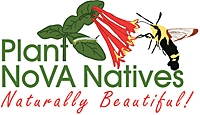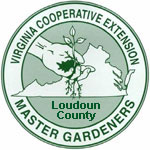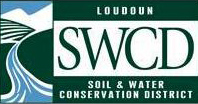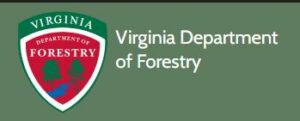Volume 26 Issue 4, Fall 2021
by Anne Owen, Audubon at Home Coordinator
Having worked with Loudoun Wildlife Conservancy’s Audubon at Home (AAH) program for several years, I am very impressed with the range of great resources that are available here in Loudoun County for residents who want to steward their property in ways that support wildlife.
Loudoun Wildlife’s trained volunteer AAH Ambassadors visit property owners and help provide information and practical recommendations to get started on establishing and nurturing healthy habitat for native wildlife on every scale, from container gardens, townhouse yards, and front lawn meadows to multi-acre properties that can accommodate larger meadows and forest. The AAH approach focuses on the three things that wildlife needs to thrive — water, food, and shelter, both for protection and to raise young, providing these things throughout the year, to support all life-cycle stages. A large focus area for us is advocating for native plants. Our Ambassadors are all either Virginia Master Naturalists or Master Gardeners, and have a wealth of excellent reference materials that we can pass along. With the wide range of properties here in Loudoun, it is always good to know where we can turn for information and in-depth support on specific challenges.
 For native plant know-how in our area, it is hard to beat the outstanding Plant NOVA Natives website. It has an extensive list of topics of interest, including where to buy insecticide-free native plants locally, landscapers who work with native plants, hints and tips for creating habitat and suggested solutions for many common landscaping headaches, such as deer browse and invasive plant management. “Spread the Word” has resources for anyone who wants to influence friends or neighbors, and there is even a section to help landscaping professionals who are new to using native plants. For anyone who is focused on using only plants that are native to Loudoun County (rather than more broadly to Northern Virginia), the online Digital Atlas of the Virginia Flora will let you know if a particular plant is native, introduced, or absent from each county.
For native plant know-how in our area, it is hard to beat the outstanding Plant NOVA Natives website. It has an extensive list of topics of interest, including where to buy insecticide-free native plants locally, landscapers who work with native plants, hints and tips for creating habitat and suggested solutions for many common landscaping headaches, such as deer browse and invasive plant management. “Spread the Word” has resources for anyone who wants to influence friends or neighbors, and there is even a section to help landscaping professionals who are new to using native plants. For anyone who is focused on using only plants that are native to Loudoun County (rather than more broadly to Northern Virginia), the online Digital Atlas of the Virginia Flora will let you know if a particular plant is native, introduced, or absent from each county.
 The Virginia Cooperative Extension (VCE) Loudoun County Master Gardeners offer several programs that can supplement an Audubon at Home visit. While we would love to see lawns eliminated, we know that is usually not practical! The Healthy Virginia Lawns program will help you manage your turf in an environmentally safe manner to help reduce excess nutrients in ground and surface water run-off, ultimately protecting local waterways including the Chesapeake Bay. VCE Loudoun Master Gardeners who have qualified as Tree and Water Stewards provide education to the community on the benefits and proper planting and care of trees, promoting the social, economic, and mental health benefits of planting trees and tree care and supporting these types of projects that benefit the residents of the county. They will visit individuals and larger groups, including HOAs. Finally, the Master Gardeners also offer site visits to assess your pond, stream, or any area suffering erosion and will provide recommendations to maintain your landscape and a healthy ecosystem.
The Virginia Cooperative Extension (VCE) Loudoun County Master Gardeners offer several programs that can supplement an Audubon at Home visit. While we would love to see lawns eliminated, we know that is usually not practical! The Healthy Virginia Lawns program will help you manage your turf in an environmentally safe manner to help reduce excess nutrients in ground and surface water run-off, ultimately protecting local waterways including the Chesapeake Bay. VCE Loudoun Master Gardeners who have qualified as Tree and Water Stewards provide education to the community on the benefits and proper planting and care of trees, promoting the social, economic, and mental health benefits of planting trees and tree care and supporting these types of projects that benefit the residents of the county. They will visit individuals and larger groups, including HOAs. Finally, the Master Gardeners also offer site visits to assess your pond, stream, or any area suffering erosion and will provide recommendations to maintain your landscape and a healthy ecosystem.
 Virginia’s Soil and Water Conservation Districts (SWCD) offers the Virginia Conservation Assistance Program (VCAP), an urban cost-share program that provides financial incentives and technical and educational assistance to property owners installing eligible Best Management Practices to manage problems like erosion, excess impervious surfaces, and poor vegetation, thereby helping to improve regional water quality. SWCD staff will visit your property to help determine which best practice is the best fit and provide technical resources to help you design a plan that you can submit for a cost-sharing grant.
Virginia’s Soil and Water Conservation Districts (SWCD) offers the Virginia Conservation Assistance Program (VCAP), an urban cost-share program that provides financial incentives and technical and educational assistance to property owners installing eligible Best Management Practices to manage problems like erosion, excess impervious surfaces, and poor vegetation, thereby helping to improve regional water quality. SWCD staff will visit your property to help determine which best practice is the best fit and provide technical resources to help you design a plan that you can submit for a cost-sharing grant.
 Many properties in Loudoun County have woodland, and landowners can reach out to the Virginia Department of Forestry (VDOF) for support. VDOF employs a network of professional foresters who work across the state assisting landowners in managing their forestland to meet their short-term and long-term goals and objectives. VDOF foresters can help landowners learn about their forestland and natural resources, and they can prepare management plans with recommended practices. They also can help landowners apply for federal and state cost-share assistance programs and identify insect and disease problems that can affect the health of the forest. And when the landowner is ready to act, VDOF foresters can be available to provide lists of contractors who can implement the management practices. The service is open to property owners with only small amounts of woodland as well as those with more extensive forest.
Many properties in Loudoun County have woodland, and landowners can reach out to the Virginia Department of Forestry (VDOF) for support. VDOF employs a network of professional foresters who work across the state assisting landowners in managing their forestland to meet their short-term and long-term goals and objectives. VDOF foresters can help landowners learn about their forestland and natural resources, and they can prepare management plans with recommended practices. They also can help landowners apply for federal and state cost-share assistance programs and identify insect and disease problems that can affect the health of the forest. And when the landowner is ready to act, VDOF foresters can be available to provide lists of contractors who can implement the management practices. The service is open to property owners with only small amounts of woodland as well as those with more extensive forest.
 The plight of pollinators is creating increased interest in growing native grassland and meadows. The Clifton Institute, a nonprofit based in Warrenton, now has a land management outreach associate who is available to visit local properties. Marie Norwood will provide advice about managing land for the benefit of native plants and animals, with an emphasis on wildflower meadows and grassland restoration. Every landscape is different, and every landowner has different goals. The Clifton Institute is pleased to now be able to give advice that is tailored to individual properties.
The plight of pollinators is creating increased interest in growing native grassland and meadows. The Clifton Institute, a nonprofit based in Warrenton, now has a land management outreach associate who is available to visit local properties. Marie Norwood will provide advice about managing land for the benefit of native plants and animals, with an emphasis on wildflower meadows and grassland restoration. Every landscape is different, and every landowner has different goals. The Clifton Institute is pleased to now be able to give advice that is tailored to individual properties.
With resources like these, in addition to the wonderful staff at our area’s native plant nurseries, there has never been a better time to create and enrich healthy habitat to sustain our native wildlife!
You can find all these resources here:
- Audubon at Home
- Plant NOVA Natives
- Digital Atlas of the Virginia Flora
- Loudoun County Master Gardeners
- Virginia Conservation Assistance Program
- Virginia Department of Forestry
- The Clifton Institute

